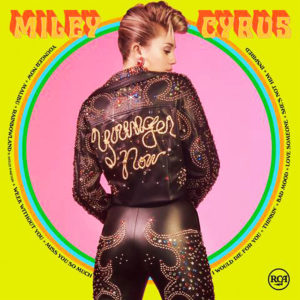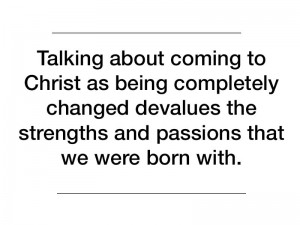If you’re anything like me, you hear the name of Miley Cyrus and cringe a little bit. When her name is invoked in public, there are often looks of scorn and flashbacks to a Spandex-clad, hammer-licking past that none of us wish to relive (including, it seems, Miley herself). So I’m sure you can imagine my surprise when I got a notification from Spotify telling me that Miley had a new album out. I was apprehensive. Still, as a college student who is always looking for ways to procrastinate, I clicked the play button. Wow, am I glad I did.
 If I could describe her new album “Younger Now” in one word, it would be “mature.” It’s miles and miles ahead of Miley’s older songs, all dripping with pop star dreams and the monster that fame makes of us all. In her new album, Miley revisits her roots in the Memphis country music scene, borrowing from influences like Elvis, Dolly Parton (who makes an appearance in the track “Rainbowland”), and her father, Billy Ray Cyrus. The album has the reflectiveness that is often evident in these kinds of songs.
If I could describe her new album “Younger Now” in one word, it would be “mature.” It’s miles and miles ahead of Miley’s older songs, all dripping with pop star dreams and the monster that fame makes of us all. In her new album, Miley revisits her roots in the Memphis country music scene, borrowing from influences like Elvis, Dolly Parton (who makes an appearance in the track “Rainbowland”), and her father, Billy Ray Cyrus. The album has the reflectiveness that is often evident in these kinds of songs.
It’s not hard to see why, either. This album is a statement from Miley herself that she isn’t the same person she was. The album’s title track, “Younger Now,” is a ballad to both the past and the future. She explains that, while she is a completely different person now, she doesn’t necessarily regret where she’s been. As a junior in college, it is easy to relate to her sentiment: I’m both the same person and a completely different person than I was two years ago.
Other tracks on the album deal with topics in a similarly mature way. “Malibu,” which has risen to the top as one of the most popular tracks on the album, has a soft guitar riff that lulls the listener to consider their significant other under the lens of the California sky. “Rainbowland,” in which Dolly Parton makes a guest appearance, sings about unity and harmony in the homey, grassroots style that Parton herself is known so well for. “Week Without You” borrows its style from Elvis, with its opening electric guitar rhythm that is meant to get our hips swinging and our thoughts rolling.
Then there are other songs where Miley’s individual voice comes out, which further proves how mature she has become. “Bad Mood” is a rock and roll ballad that anyone who has ever “woken up in a bad mood” can relate to. “Inspired,” the final track on the album, describes her songwriting process, and where she draws her inspiration from.
Just in time for fall, with everything around us starting to change, Miley’s newest album rings true to the adult in us all. Just like this is a season for reflection on where we’ve been, and looking forward to where we’re going, Younger Now is an anthem for those who are in a different place than they were before. As college students, we look at our middle and high school photos and feel the things she’s feeling. Even those of us who are juniors and seniors can look back to our freshman selves and realize just how far we’ve come. After listening, I am reflective and optimistic, looking forward to what else Miley has in store for us.


